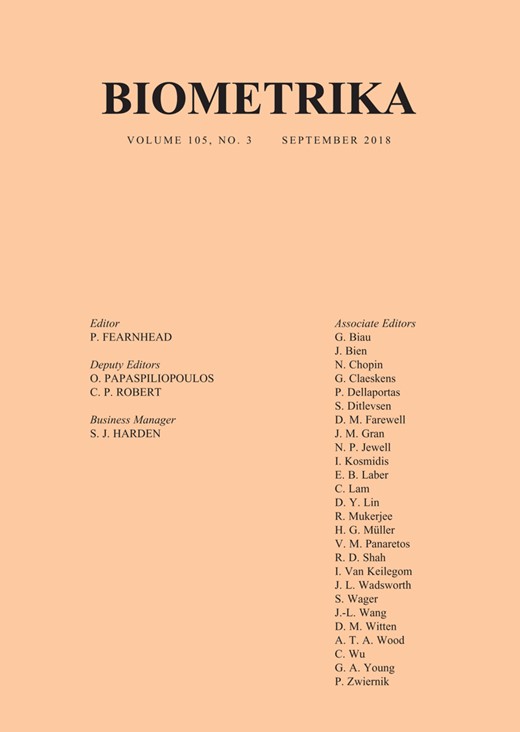-
Views
-
Cite
Cite
Marina Bogomolov, Ruth Heller, Assessing replicability of findings across two studies of multiple features, Biometrika, Volume 105, Issue 3, September 2018, Pages 505–516, https://doi.org/10.1093/biomet/asy029
Close - Share Icon Share
Summary
Replicability analysis aims to identify the overlapping signals across independent studies that examine the same features. For this purpose we develop hypothesis testing procedures that first select the promising features from each of two studies separately. Only those features selected in both studies are then tested. The proposed procedures have theoretical guarantees regarding their control of the familywise error rate or false discovery rate on the replicability claims. They can also be used for signal discovery in each study separately, with the desired error control. Their power for detecting truly replicable findings is compared to alternatives. We illustrate the procedures on behavioural genetics data.



